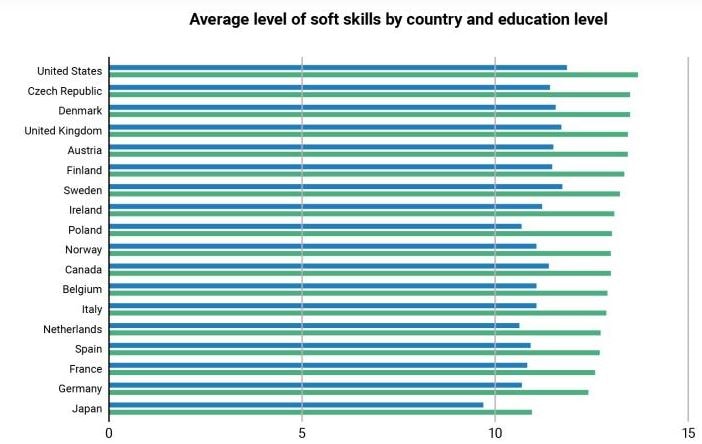
The rising importance of soft skills in driving productivity
The economy of the future requires a workforce with strong soft skills. Investing in these crucial skills can result in increased productivity
 Investing in soft skills will result in higher individual, firm and aggregate productivity, and enable the expansion of sectors that are projected to see total factor productivity growth in years to come.
Image: Shutterstock
Investing in soft skills will result in higher individual, firm and aggregate productivity, and enable the expansion of sectors that are projected to see total factor productivity growth in years to come.
Image: Shutterstock
Soft skills – the behavioural and social traits that enable individuals to work harmoniously with one another – are not just nice to have, they’re essential for the growth of a nation.
In France, 60 percent of employers consider soft skills, such as the ability to organise, adapt and work in teams, to be more important than technical competencies. However, France is far behind other developed economies when it comes to its stock of soft skills.
In our report for the Conseil d’Analyse Economique, an independent advisory group for the French Prime Minister, we estimated how much France could benefit by closing its soft skill gap. Our findings suggest that investing in soft skills will result in higher individual, firm and aggregate productivity, and enable the expansion of sectors that are projected to see total factor productivity growth in years to come.
Measuring the gap
To estimate France’s soft skills deficit, we ranked 18 developed countries using data from the OECD Programme for the International Assessment of Adult Competencies (PIAAC). The results indicated that France has the third-lowest average level of soft skills, ranking just above Germany and Japan. The United States, Czech Republic and Denmark took the top three spots.Furthermore, this skill gap was as prevalent among highly educated individuals as those who have not attended university, implying that France’s soft skills deficit is not limited to certain education groups.
[This article is republished courtesy of INSEAD Knowledge, the portal to the latest business insights and views of The Business School of the World. Copyright INSEAD 2024]








